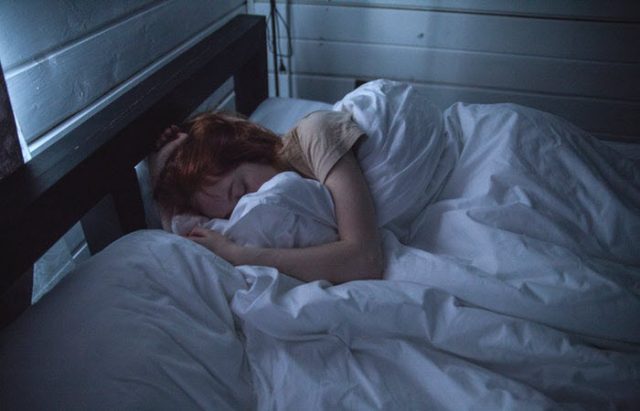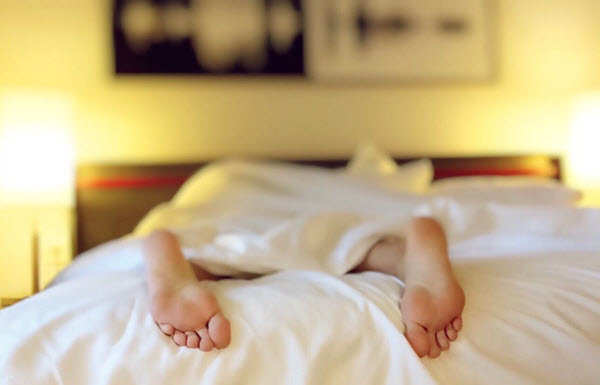How Circadian Rhythm Affects Your Sleep and Health
By Afshan Basher Aly
November 26, 2019 • Fact checked by Dumb Little Man

Circadian rhythm is a behavioral and physiological change that normally runs on a 24-hour cycle. It responds to light and darkness, making it your body’s 24-hour internal clock that regulates sleep and alertness.
The word circadian is derived from the Latin words circa and diēm, meaning around/approximately and day, respectively. Circadian rhythm is regulated by small nuclei presented in the hypothalamus of a living organism’s brain.
It works by regulating your physiological circadian rhythms. It is found to exist in most of the living being — from human beings to plants, animals, and even microbes.
Circadian rhythms are often thought to be the biological clocks of the human being’s body. However, the biological clocks and circadian clocks are not the same. Instead, they are interlinked.
About circadian rhythm sleep disorder
Generally, there are four types of circadian rhythm sleep disorders. They are divided into:
Intrinsic type
- Delayed sleep phase disorder (DSPD)
- Advanced sleep phase disorder (ASPD)
Extrinsic type
- Jet lag
- Shift work disorder
Jet lag
Jet lag is experienced by people traveling across opposite or nearly opposite time zones, like a person flying all the way to Europe from the United States of America.
Its most common symptoms are insomnia, indigestion, daytime sleepiness, irritability, and poor concentration. These symptoms can last from 24 hours to a week, depending on how quick a person can adapt and the number of times zones involved.
See Also: How to Reduce Jetlag and Enjoy Flying
Shift work disorder
Shift work disorder is found in people working at night and rotating shifts. It’s quite similar to jet lag, but it doesn’t involve changes in time zones.
The condition happens when people work at night and sleep during the day. As a result, they have a disrupted sleep pattern because their sleep is tumbled down often due to the fact that brighter hours are not for sleeping.
Basically, your circadian cycle is active in your brain more than in daytime than in the darker hours due to the system of being programmed to be awake during the sunlight hours.
Delayed sleep phase disorder (DSPD)
People suffering from delayed sleep disorder (DSPD) are seen to have a severe sleeping problem at normal night sleeping time. For instance, a normal person sleeps at 12 a.m., as for the person having DSPD, falling asleep at 12 midnight sharp sounds like a terrible thing.
He would at least be unable to fall asleep comfortably until 2 a.m. This commonly results in mental stress and disturbs other aspects of your routine i.e, early morning work and school activities. It is most commonly found in young adults than in any other age group.
Advanced sleep phase disorder (ASPD)
Patients of ASPD are quite opposite to DSPD sufferers. They generally tend to sleep in the early afternoon and wake up comparatively very earlier in the morning than other normal individuals. This disorder is most commonly diagnosed in older adults and doesn’t impose much impact on daily life activities.
However, it is pretty complex to recover from it. Even if a person tries to keep himself awake the whole afternoon to sleep late at night, aiming to sleep in, he would still wake up earlier as usual. In other words, not even a lack of sleep can treat it immediately.
Ways to improve sleep quality
There are several ways to alter your sleep schedule in order to treat your circadian rhythm disorder for better sleep quality.
Treating jet lag
- Plan your traveling schedule with an extra day to adjust your sleep according to the new time zone.
- Try taking a nap at a specific time in a day to help you overcome it much easier. This time would depend on the new time zone.
Treating DSP and ASP
- It is usually observed that DSP patients are often wrenched into the depression that leads them to an abnormal sleep cycle. Hence, it is best advised to take professional assistance to reduce stress.
- Bright light therapy is another productive treatment to reset the circadian rhythm/clock of your body. Proper exposure to bright light at the right time of the day can treat both delay and advanced sleep phase disorders.
- Generally, people with DSPD are advised to expose themselves to bright light in the morning to help circadian clock shift to early hours.
- Similarly, ASPD patients are suggested to expose themselves to bright light in the evening to help circadian clock shift to later hours.
3. Sometimes a poor sleep habit also disrupts your sleep pattern. Again, such a case is better to be supported and assisted by a professional. This time, a sleep specialist can make a big difference.
Circadian rhythm lighting
There is more to light than meets the eyes— witnessing a lay man’s perception of light, it is to postulate the fine details of this world along with stunning colors. However, research came to betray this perception, stating that light does a lot to regulate biological clocks within a living organism’s body.
This is not associated with our sense of sight. Instead, it is associated with our body’s internal clock that is to regulate the phenomena of sleep and alertness in correspondence with the brighter and darker hours.
Dwelving into the historical time of our ancestors, when there were no electrical lights, the caveman was habitual to wake up in the earliest hour as soon as the first beam of sun strikes the earth and goes to bed right after the sun sets. In other words, the solar time of the earth used to regulate our sleep-wake cycle, keeping our circadian rhythms in the right state.
Studying the anthropology of luminosity, it was discovered that the later innovations of lanterns and electricity bulbs created a society where a man can arrive late at night and work with full efficiency. Such man-made inventions boosted productivity but sadly, nurtured a society that is no more in synchronization with the circadian clock.
The circadian rhythm is vital for a living being’s overall health for the purpose of regulating sleep and hormone level. Scientists have discovered that our eyes play a dual role in transmitting information to our brains. This system works as:
The optic nerve transmits the pattern of lights to the visual center in the brain but, at the same time, another branch transmits the data regarding light to the suprachiasmatic nucleus (SCN). The SCN is then responsible for the secretion of hormones from different glands in the endocrine system.
Meanwhile, the pineal gland in the hypothalamus is responsible for the secretion of a hormone known as melatonin, which controls our body’s function of sleepiness and alertness.
When we are exposed to bright white lights, this secretion compresses and makes us alert. Similarly, exposure to darker and warm lights accelerates this secretion, making us sleepy.
The world now has healthy light bulbs to replicate the bright light of the sun inside the home. These are called circadian lights, innovated based on the metrics and research in the treatment of circadian entrainment. Generally, there are three approaches guarding the latest invention: circadian lighting. These are:
- Color tuning
- Intensity tuning
- Stimulus tuning
With circadian rhythm lights, there also comes mood enhancing lights. With that, scientists have targeted SAD patients. Their mood is affected by the drastic change in weather conditions. Take winter for example, when the days are shorter and nights are darker yet longer, the only thing that can impose a remarkable impact on your lowered productivity is light therapy. Mood enhancing lights also lie under the category of healthy lights.
Overall, it is highly important to keep check of your circadian rhythm. People often ignore abnormal sleep patterns, but in reality, they are of greater concern. With the latest findings and research of science, circadian rhythm lighting is showing impressive results by treating several patients.
Afshan Basher Aly
Afshan is a guest blogger with a passion for health and wellness topics. Afshan regularly writes about the benefits of circadian lighting, and the benefits of Brilli lighting – a USA based wellness company.



